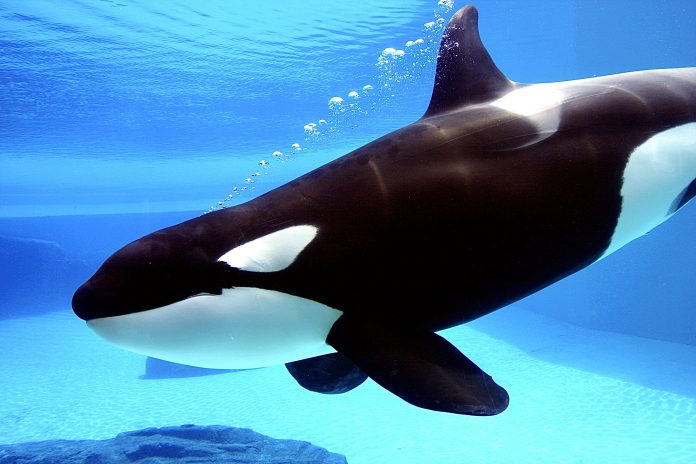
Critical Bill That Would Prohibit Breeding, Importing & Exporting, And The Wild Capture Of Four Whale Species Is Introduced In The U.S.
You can help all animals and our planet by choosing compassion on your plate and in your glass. #GoVeg
RELATED ARTICLES
Banning Cruelty: New Legislation Aims To Ban Octopus Farming In The U.S.
New bipartisan legislation has just been introduced in the U.S. to ban commercial octopus farming and prohibit imports of farmed octopus from foreign countries.
The...
Outrage In Yellowstone! Grizzly Bear Killed By Wildlife Officials & Left With Head & Paws Cut Off
Photo by: Trisha McFarland / Cowboy State Daily
A photo of a dead grizzly bear with its head and paws cut off has caused an...
Inside Florida’s Illegal Horse Meat Trade: Undercover Footage Shows Racehorse Being Shot & Butchered
A heart-wrenching discovery of illegal horse slaughter has emerged, with video footage exposing the tragic killing of a racehorse named 'Funny Biz,' who was...
Popular stories
Breaking News
Cockfighting Ban In Costa Rica Upheld After Being Challenged By Cockfighting Breeders Association
The Inter-American Commission on Human Rights has dismissed a complaint regarding Costa Rica's ban on cockfighting, a decision hailed as a significant win for...
!! Coronavirus
Mother Nature Miraculously Reclaims Italy In The Midst Of The Coronavirus Quarantine
Photo by Marco Contessa
As Italians begin their second week of nationwide quarantine due to the coronavirus pandemic, the environment, animals, and wildlife have already...
News
Victory! South Korea Announces Plans To Ban Dog Meat Industry By The End Of 2023 With A Three Year Phase Out
Photos by HSI Korea
A historic announcement as the South Korean government has stated that before the end of 2023, it will introduce a bill...



